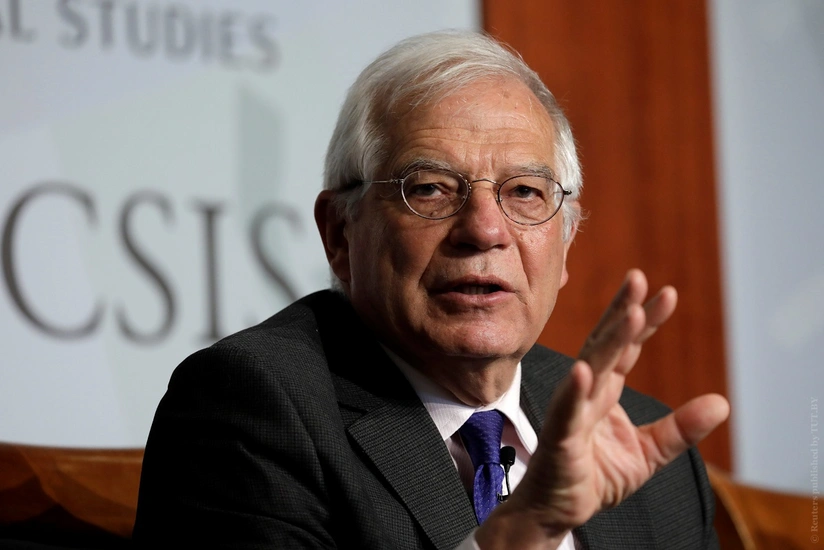Borrell calls on EU countries to increase defense spending to more than 2% of GDP
- 15 April, 2024
- 07:12

The EU High Representative for Foreign Affairs and Security Policy, Josep Borrell, stated the need to increase attention to the defense sector and increase military spending to more than 2% of GDP, Report informs via Interfax.
"We must assume our strategic responsibility and become able to defend Europe by ourselves, building a strong European pillar inside NATO. And we need to make this leap forward in a very short period of time. Not because we intend to go to war. On the contrary: we want to prevent it by having the means to credibly deter any aggressor," he said.
He noted that this does not mean creating a European army. Defence is and will remain for a foreseeable future an exclusive competence of Member States.
According to Borrell, it is first about spending more at national level.
"In 2023, we have spent on average 1.7% of our GDP on defence, this percentage must increase to more than 2%.
"But, even more importantly, it is about spending together to fill gaps, avoid duplications and increase interoperability. Only 18% of equipment purchases by our armies are currently made cooperatively. Even though we set a 35% benchmark in 2007," Borrell said.
He said the EU "also urgently need a leap forward for our defence industry."
Borrel said that since the beginning of the events in Ukraine, European armies bought 78% of new equipment from outside the EU.
"We have made important progress in recent months, but we still have difficulties in sending enough ammunitions to support Ukraine. Additionally, we face significant qualitative challenges in new military technologies like drones or Artificial Intelligence," he said.
He said one major lesson of the war in Ukraine is that technological superiority is key. "To achieve this, we must invest massively," Borrell said.
"We need to have a home-grown defence industry to meet our needs," he said.
